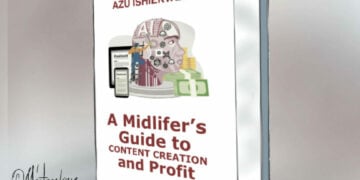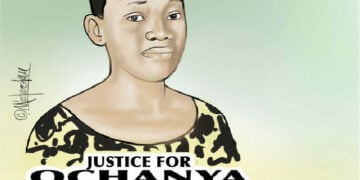The news from Ghana was not how John Dramani Mahama’s opposition party, the National Democratic Congress (NDC), defeated Nana Akufo-Addo’s ruling New Patriotic Party (NPP).
The news was how Akufo-Addo managed to survive a full second term. Towards the end of his first and for much of his second term in office, he governed with his head on the block, just waiting for the axe to fall.
His party’s loss in the December 7 presidential election was a defeat foretold. It was barely two years after Akufo-Addo assumed office in 2017 when doubts about his party’s viability began to surface. It shouldn’t have been so.
His predecessor, the John Atta-Mills/Dramani government, made such a mess. Apart from divisions within the NDC, it was further weakened by a series of serious corruption scandals, the most remarkable of which were the government’s involvement in the transfer of $11 million and £9 million paid by a party financier and a litany of failed promises.
Dramani’s loss to Akufo-Addo relieved the loser, who only managed to finish Atta-Mills’ term after the latter died in office.
Hero to zero
As I wrote in a 2022 article, Akufo-Addo was off to a flying start. From New York to Beijing and Paris, he became the new face of the African Renaissance, saying the right things wherever he went on the global stage and raising a $3 billion Eurobond for Ghana’s restructuring that overperformed its order book by $21 billion.
Despite his best efforts, COVID-19 and the Russia-Ukraine War put Ghana in a tight spot. The country’s predicament was worsened by poor fiscal discipline, unstable commodity prices, and a capitulation to pressure from Labour to increase public sector wages to unsustainable levels.
Akufo-Addo’s party paid upfront for the country’s misery. Multiple protests rocked the streets of Accra and other major capitals, and voters couldn’t wait to bury the NPP with any remaining claims of good deeds at the polls.
Beyond elections
However, the election meant something more for the subregion than about angry and tired Ghanaian voters removing an incumbent government.
In the last four years, the subregion has been plagued by military coups reminiscent of a bygone era. Mali, Niger, Guinea and Burkina Faso have formed an arc of Delinquent States, with three of them sundering the decades-old Economic Community of West African States (ECOWAS) by creating a parallel Alliance for Sahelian States in defiance of the regional powerhouses and even the AU.
Successful elections and transitions in Liberia, Sierra Leone, Senegal, Nigeria, and Ghana have offered a counter-narrative. It’s all the more heartening that the ruling party’s candidate in the election, Vice President Mahamudu Bawumia, did not wait for the official result before conceding defeat, reinforcing a trend started in 2015 by Nigeria’s former President Goodluck Jonathan.
Job for powerhouses
The successful transition is good news for regional economic stability. Although the four break-away states constitute half of the ECOWAS area and only seven percent of economic activity within the zone, the economic sanctions imposed on them by the subregional group impacted swathes of the primarily poor populations across the region, where informal cross-border trade, mainly in food, make up about 30 percent of regional trade.
Stable transitions in Ghana and Nigeria, the region’s two economic powerhouses, would allow ECOWAS to reassess its options – a significant point in the agenda as the sub-regional group meets in Nigeria’s capital, Abuja, this week.
Delinquent Four on the agenda
Should ECOWAS continue to engage the breakaway states in its efforts at faster regional integration, especially in light of the fragile relations between these states and France, in an era where Russia and China are lurking and the US is self-absorbed? Or has the time come for the group to chart a new course and accept a future without the four breakaway states?
That would not only be an economic decision. It also carries significance for subregional security. Burkina Faso and Mali are out of the ECOWAS multinational joint task force. Protracted or failed elections in Ghana would have further weakened the group’s crisis response mechanism at a time when Nigerian military authorities are grappling with new security threats from Lakurawa, an ISIS franchise.
It’s unlikely that the new government in Accra, on the watch of Mahama, one of the mediators during the post-election dispute in The Gambia in 2016, would depart significantly from the leading role that Ghana has played in subregional peace support operations, which goes back to its role in ECOMOG in the 1990s.
Go to court!
At a more granular level, there are other reasons why Ghana’s election matters, especially in relations between Abuja and Accra. Already, the commentariat in Nigeria is holding up Ghana’s election as a model for the election management body in Nigeria. Apart from former President Jonathan’s pre-emptive concession of defeat nine years ago, Nigeria is perhaps the continent’s capital of disputed elections.
Of course, Nigeria’s election management body needs to raise its game. Fundamentally, however, the chaos reflects the winner-takes-all mentality among Nigeria’s political elite, which has increasingly seduced the courts to decide elections. Often, when Nigerian politicians taunt their opponent to “go to court” after an election, they are confident of a favourable outcome.
Ghanaian Jollof
Nigerians also envy Ghana’s rise as the new destination for big business, a prospect that could only have been enhanced by the smooth election. Despite Ghana’s economic crisis, Nigeria has lost several fintech and manufacturing companies to its western neighbour in the last three years.
Guinness, for example, has moved its operational headquarters to Accra, while others, such as Afprint, President Industries and Aswani – all in the textile sector – are reportedly contemplating relocation. Because of Ghana’s stable and predictable political environment, tech giants, including Google, X (formerly Twitter), and Facebook, have not hidden their preference for it despite Nigeria’s significant market size.
Whether, apart from its business attraction, Ghanaian jollof would also best Nigeria’s jollof in the unending cuisine war between both countries in the next four years under Mahama remains to be seen.
Voters’ psyche
If there’s anything that the outcome of Ghana’s election teaches, even beyond the subregion, it is that voters don’t forgive politicians who leave them feeling worse off. You may have saved them from COVID-19, the fallouts of global conflicts elsewhere, or the headwinds afterwards. However, what weighs on their mind when they cast their ballot is whether they’re feeling better off today.
That was why Rishi Sunak lost to Keir Starmer in Britain, and Vice President Kamala Harris lost to Donald Trump in the US. It was also why Akufo-Addo survived his second term by the skin of his teeth but failed to hand over the baton to his deputy in Ghana.




